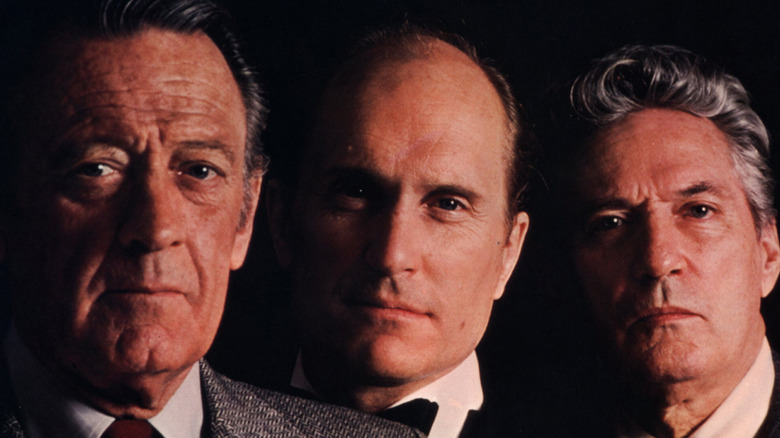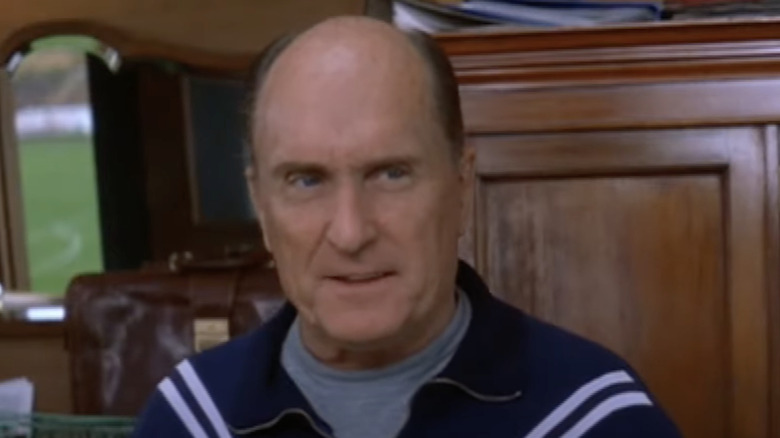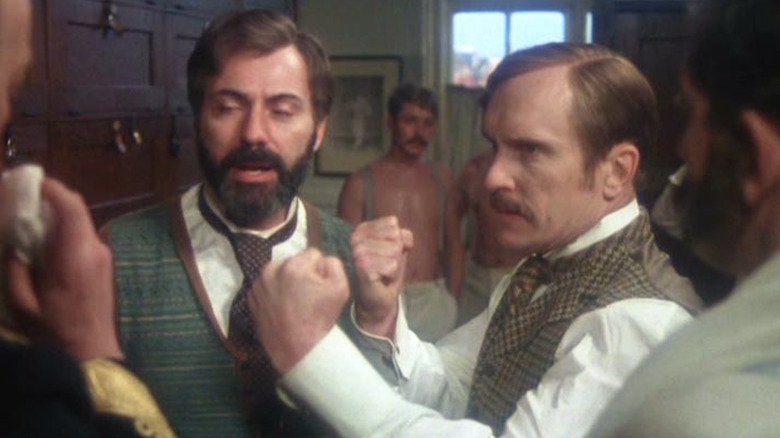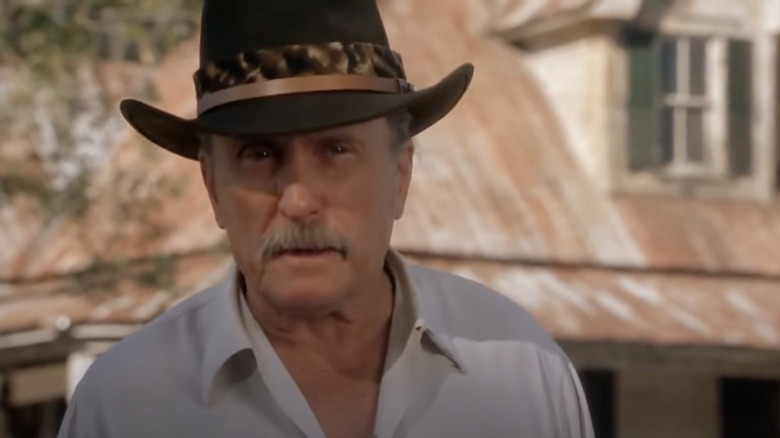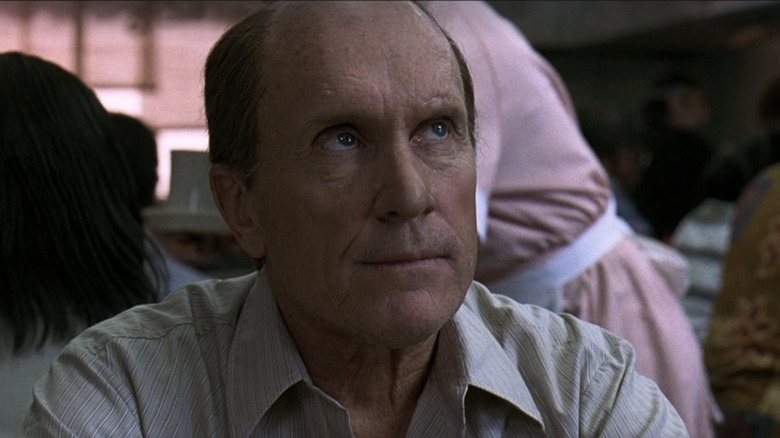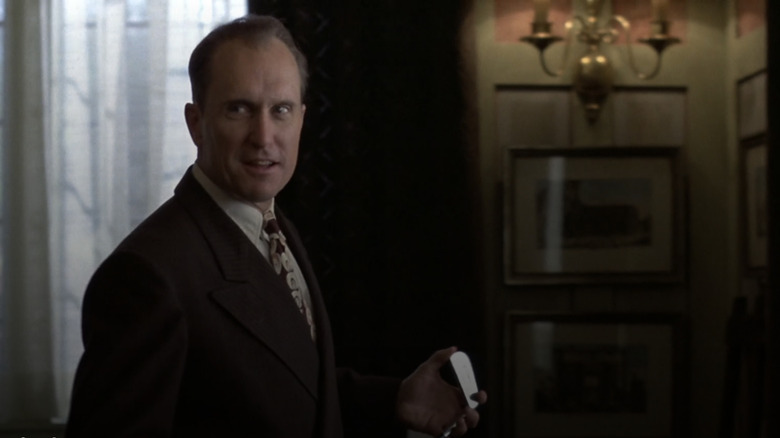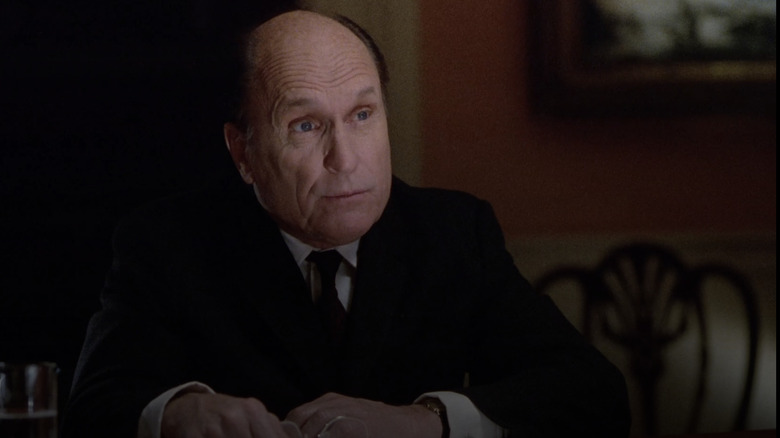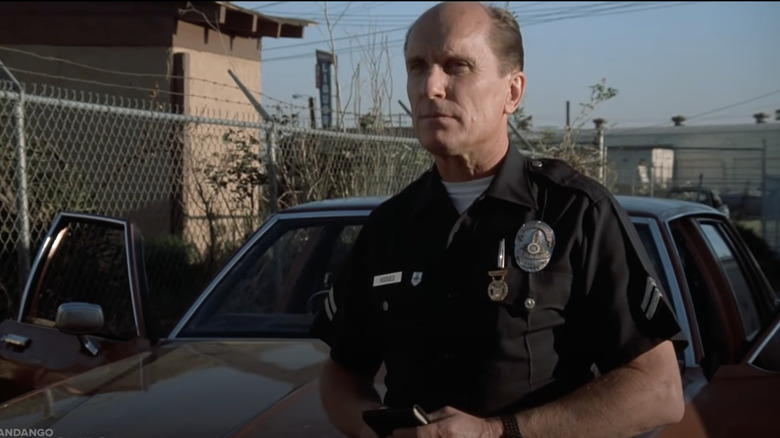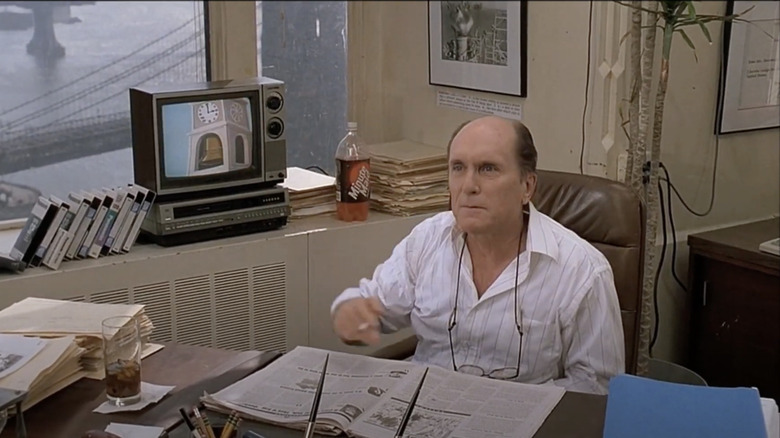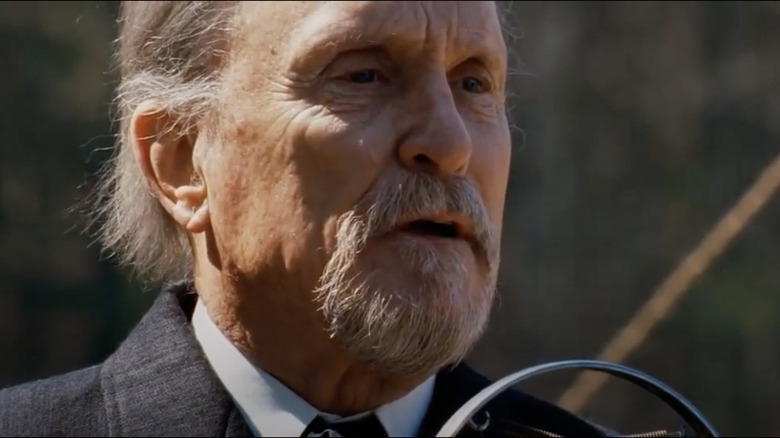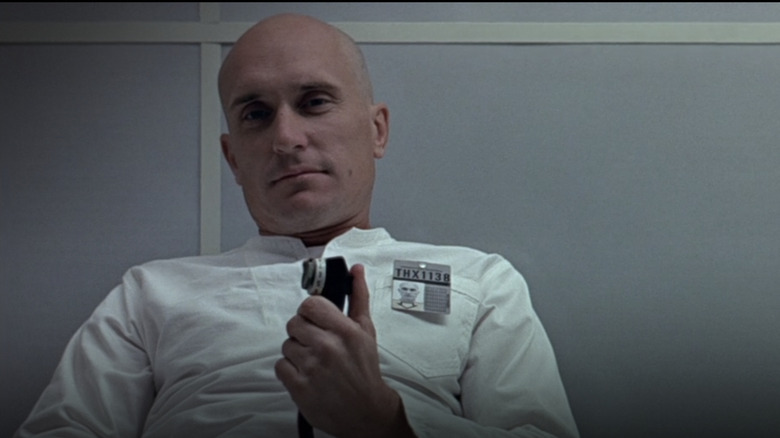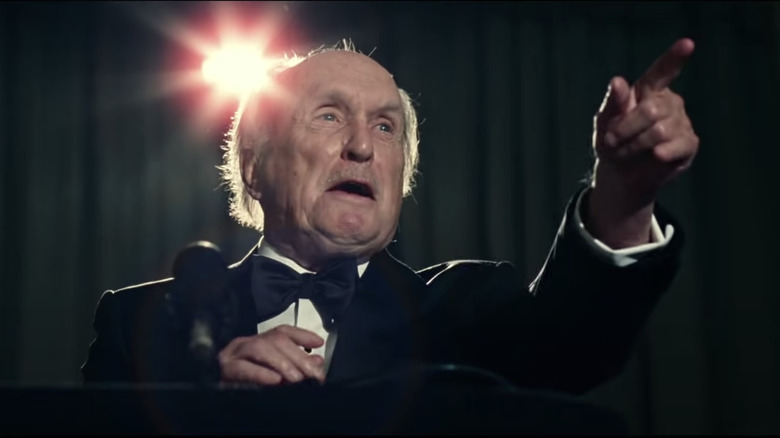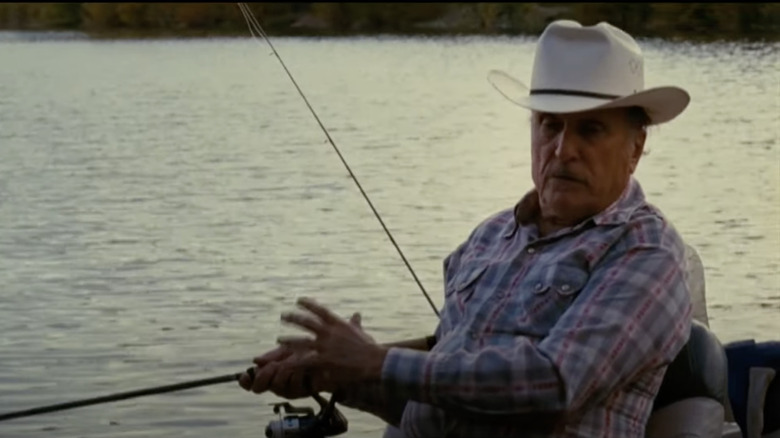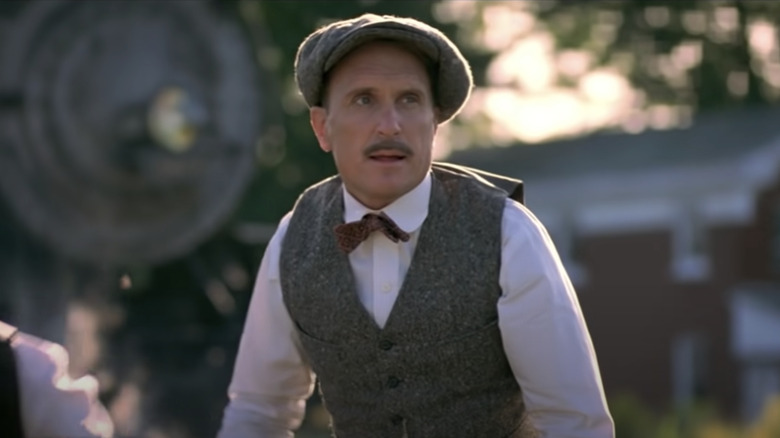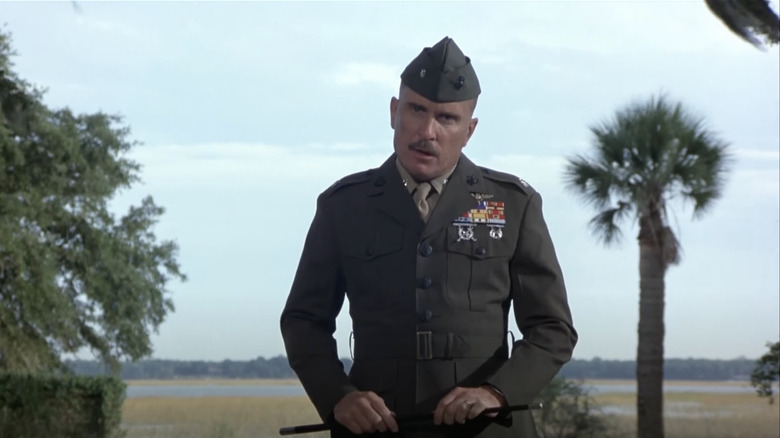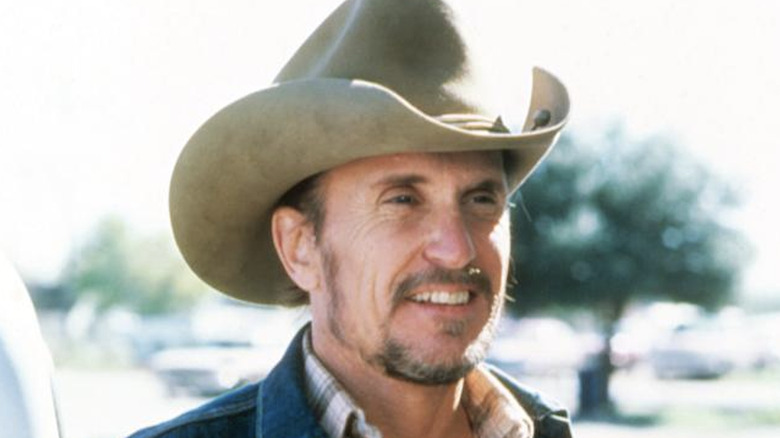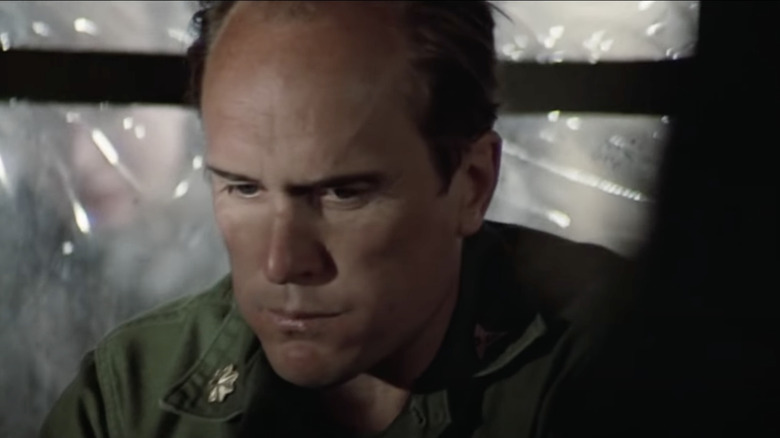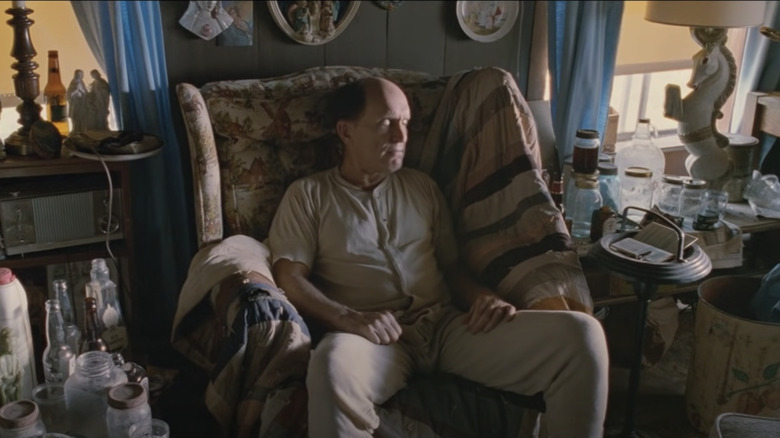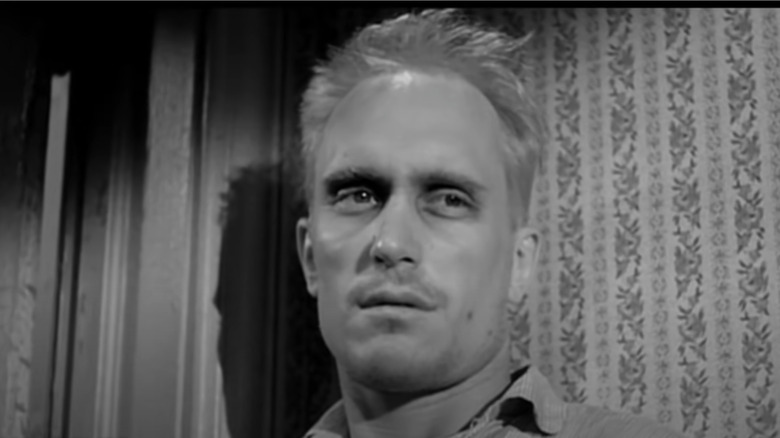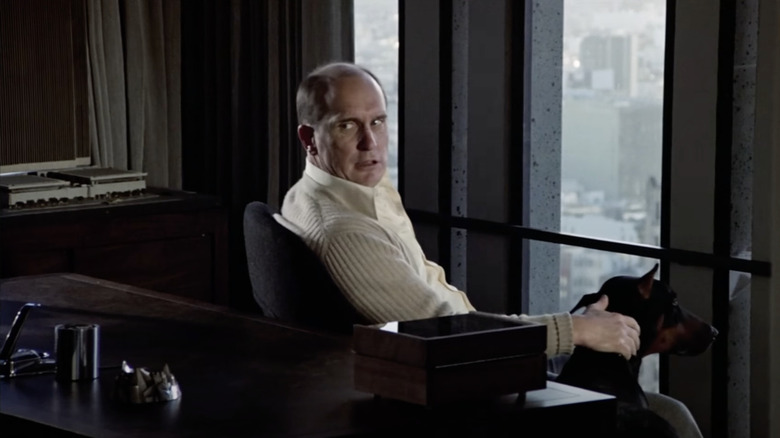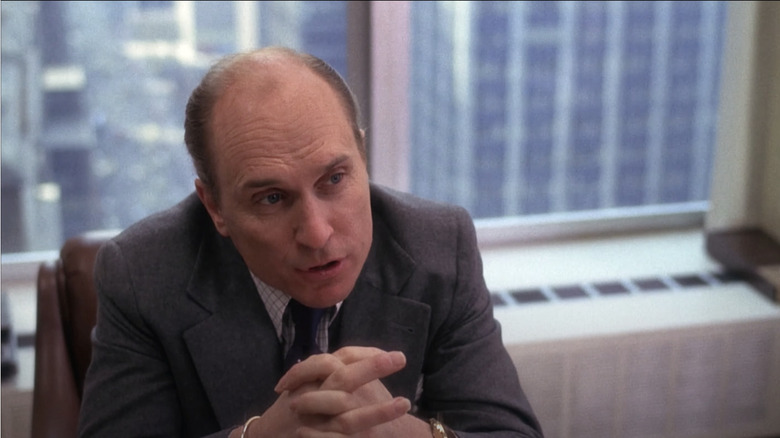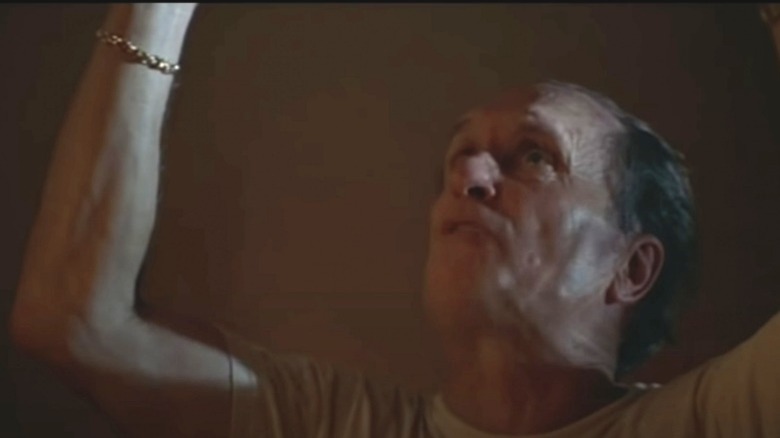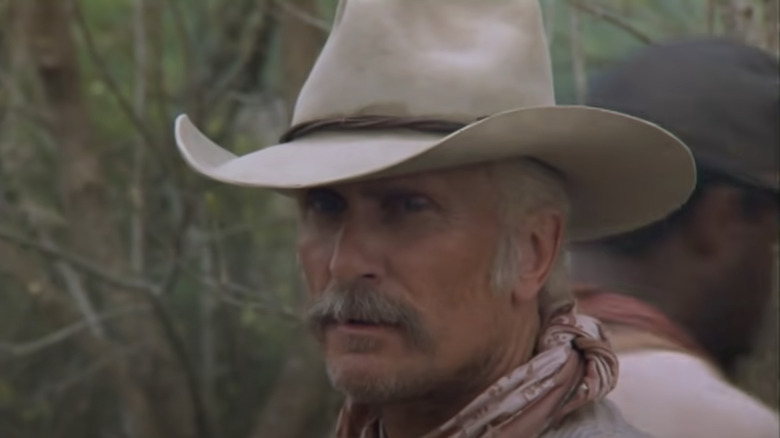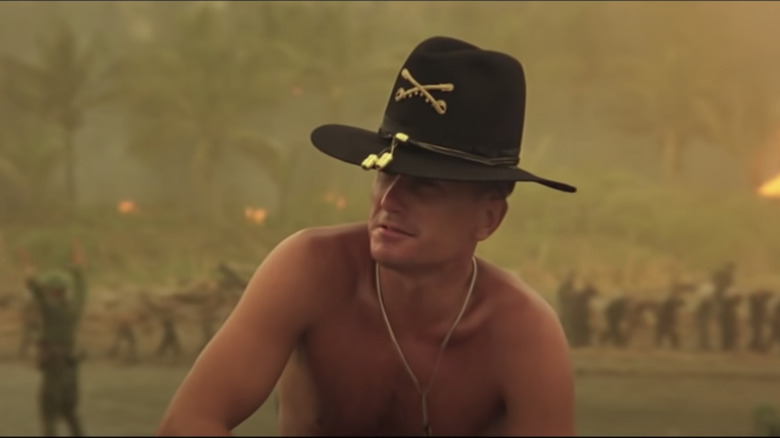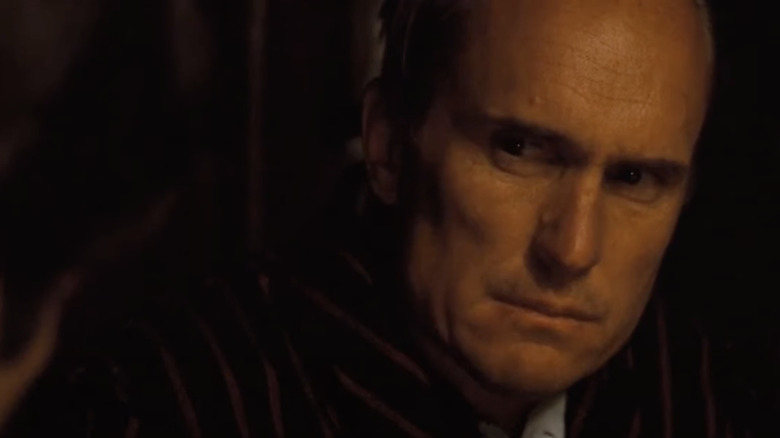25 Greatest Robert Duvall Movies Ranked Worst To Best
With a career that has spanned an astounding eight decades of film, theatre, television, and music, Robert Duvall is one of the all-time great American actors.
Born in California in 1931, Duvall was raised by his mother (a former actress) and father (a Real Admiral in the Navy), and after serving with the Army during the Korean War, he moved to New York City to study under famed acting teacher Stanford Meisner. Duvall, along with his friends and roommates Gene Hackman and Dustin Hoffman, formed a generation that would revolutionize acting in the second half of the 20th century, following in the footsteps of Marlon Brando, James Dean and Montgomery Clift by embracing an internal, naturalistic form of performance that favored honesty over theatricality.
After years of theatre work and small television roles, lighting struck when Duval made his film debut as Boo Radley in "To Kill a Mockingbird," ranked by the American Film Institute in 2007 as the 25th greatest film ever made. The ensuing decades would see Duvall's career skyrocket, appearing in over 100 films in roles big and small and in nearly every genre, including many additional titles ranked among the greatest works Hollywood has ever produced. From the "Godfather" films to "Network" and "The Natural," let's take a look at Duvall's greatest films, including established classics, under-appreciated gems, and oddities that deserve a second look.
24. A Shot at Glory (2000)
Robert Duvall is such a quintessentially American actor that it can feel odd to see him playing a different nationality, as he does in director Michael Corrente's sports drama "A Shot at Glory." Duvall throws on a thick Scottish brogue as Gordon McLeod, the warmhearted coach of a struggling soccer team whose American owner (Michael Keaton) gives an ultimatum: Bring in a hotshot new player (former Scottish national team star Ally McCoist, in his film debut) and start winning matches, or the team gets moved from the sleepy little town that has been its home for decades.
The film finds Duvall in an inspirational, tough-love mode that he can play in his sleep, as he did in the Tom Cruise racing drama "Days of Thunder." As a man facing a personal and professional crossroads, his performance is undeniably affecting, and the film's sports movie cliches get a fresh coat of paint thanks to the novelty (to American audiences, at least) of its setting.
23. The Seven-Per-Cent Solution (1976)
Duvall ventured across the pond once again for director Herbert Ross' 1976 oddity "The Seven-Per-Cent Solution," playing no less a (fictional) Brit than Dr. John Watson opposite Nicol Williamson ("Excalibur") as Sherlock Holmes. Written by future "Star Trek II: The Wrath of Kahn" director Nicholas Meyer and based on his own novel, the film is a fan-fiction take on Arthur Conan Doyle's detective duo; as Holmes' cocaine addiction (the seven-per-cent solution of the title) spirals out of control, he and Watson travel to Vienna to seek the treatment of famed psychotherapist Sigmund Freud (Alan Arkin).
Vienna, of course, becomes a hotbed of intrigue, with Holmes' archenemy Professor Moriarty (Laurence Olivier) in town to challenge both Holmes and Freud. The film anticipates the more action-oriented Sherlock Holmes adaptations that would star Robert Downey, Jr. decades later, with Holmes sword-fighting atop a speeding train in the film's climax. Duvall ultimately doesn't have enough to do as Watson, with the film largely stolen by Arkin's comedic take on Freud.
22. Secondhand Lions (2003)
It's 1950s Texas and the wild, irresponsible mother of young teen named Walter (Haley Joel Osment) has abandoned him to the care of her ornery, trigger-happy uncles for a summer of hijinks and gentle life lessons in the 2003 family film "Secondhand Lions." Brothers Garth (Michael Caine) and Hub (Duvall) are town legends; rumors abound that they have a secret fortune stolen from Al Capone, while Hub picks fights with local boys a third of his age. Garth spins fanciful, romantic adventure stories for Walter about the brothers' time in the French Foreign Legion as young men, and wouldn't you know it if some of those wild tales turn out to actually be true.
Neither Caine nor Duvall are reinventing the wheel with their performances, but the word "endearing" comes to mind with every frame. Caine's more level-headed brother recalls a friendlier version of his ether-huffing doctor in "The Cider House Rules," and Duvall's quick-tempered Hub is a gloss on Gus from "Lonesome Dove." The real draw at the time was Osment, who was attempting to transition into teenage roles after the acclaim he won as a child in "The Sixth Sense" and "Pay it Forward."
21. A Family Thing (1996)
When his sainted mother dies, Earl Pilcher (Duvall), a white Arkansas man, receives two bits of shocking news: First, that his birth mother was in fact a Black woman who died in childbirth after having an affair with his father; and second, that he has a half-brother living in Chicago. Earl travels up to the Windy City to find his long-lost brother Ray (James Earl Jones), who not only is well aware of his Caucasian sibling, but has no interest in forming a relationship with him.
1996's "A Family Thing," co-written by Billy Bob Thornton, offers a fantasy of racial reconciliation in the form of a family drama, with a fair amount of culture-clash comedy mixed in. It's no secret whether or not Earl will get past Ray's defenses and make a new family with the brother he never knew about. The power of the film is not in the plot mechanics, but in the skill of the actors and the gravitas they bring — not just Duvall and Jones, but also Chicago actress Irma P. Hall as the men's blind aunt.
20. True Confessions (1981)
Robert De Niro and Robert Duvall reunited (sort of) eight years after "The Godfather Part II" in 1981's "True Confessions," a seedy Los Angeles noir partly inspired by the famous "Black Dahlia" murder. De Niro and Duvall play brothers Des and Tom, an ambitious monsignor and a hard-nosed detective, respectively, in 1948 Los Angeles. When a young sex worker is found brutally murdered, the clues seem to point to Amsterdam (Charles Durning), an upstanding member of Des' diocese who started out as a thief and a pimp. But is Tom targeting Amsterdam based on evidence, or his own biases? And does Des know more about the murder victim than he is letting on?
Just as De Niro and Duvall did not share a scene in "The Godfather Part II," they mostly operate in their own spheres here as well. Directed by Ulu Grosbard (who had directed Duvall on Broadway in David Mamet's "American Buffalo") and with a screenplay by the great LA writer Joan Didion (based on a novel by her husband John Gregory Dunne), the film offers a bleak view of the City of Angels, where there is no institution, heavenly or otherwise, that can't be corrupted.
19. A Civil Action (1998)
The twin 1990s trends of courtroom thrillers and the John Travolta renaissance met with 1998's "A Civil Action."
Written and directed by Steven Zallian, based on Jonathan Harr's nonfiction bestseller, Travolta stars as Jan Schlictmann, a small-time personal injury attorney who takes on a class-action suit brought by the families of twelve children whose leukemia deaths may have been caused by industrial pollution. What Jan doesn't realize at first is that those parties responsible for the pollution are two multinational conglomerates with high-powered legal teams and money to burn.
Duvall, reuniting with Travolta after 1996's "Phenomenon," stars as Jerome Facher, Jan's counterpart on the other side of the bench. One of the film's great strengths is its refusal to paint either man as a hero or villain. Jan's emotional investment in the case is admirable, but doesn't mean much if his clients lose their case; likewise, Jerome is no sneering villain like Jon Voight in "The Rainmaker," but a brilliant attorney doing what he does best. Duvall received Academy Award and Golden Globe nominations for his performance.
18. Colors (1988)
Duvall's career has had its fair share of roles in which he plays the steady veteran opposite a hotheaded youngster. Dennis Hopper's 1988 gang drama "Colors" plays this dynamic on both a literal and metaphorical level, with Duvall's seen-it-all LAPD officer shepherding a young rookie played by Sean Penn through the inner city gang wars of the late 1980s. At the time, Penn was a dynamic young actor who had already earned a reputation for intense, Method-like performances. The story of an old cop passing the torch to a new generation was also the story of an old actor passing the torch to a new generation.
True to the outlook of Duvall's character, the film takes a mostly levelheaded approach to the problem of gang violence. Though the story is told through the eyes of its police characters, Hopper empathizes with the aimless young men who find violent purpose and brotherhood on the streets, as well as the communities that see police as just as violent and destructive, perhaps more so, than the gangs they are fighting. The film was a hit and so was Ice-T's theme song, charting on the Billboard Hot 100 for seven weeks.
17. The Paper (1994)
Ron Howard's "The Paper," chronicling a whirlwind 24 hours in the life of a fictional New York City newspaper, was already a little old fashioned when it was released in 1994. Now, after nearly three decades of corporate consolidation, the internet revolution, and the 24-hour news cycle, the particulars of its ink-and-landline world feel positively prehistoric. Nevertheless, the issues the film deals with remain depressingly relevant: Racial bias in the media, sexual harassment and gender discrimination, and the personal toll of loving a job that doesn't love you back.
Michael Keaton leads an all-star cast that includes Glenn Close, Marisa Tomei, and Randy Quaid as the staff of the New York Sun, working on a story that could exonerate two young African American men accused of a high-profile killing — if only anyone at the NYPD would go on the record. The film is a tribute to old-fashioned journalism and the men and women who dedicate (and often wreck) their lives in pursuit of an important story. Robert Duvall has a small-ish role as the Sun's editor, but serves as a bellwether for journalistic integrity, as if he himself were the newspaper, and vice versa. As Roger Ebert wrote in his three-and-a-half-star review, "[Duvall] turns an essentially supporting role into the man's life story," a compliment that could double as an encapsulation of the actor's career.
16. Get Low (2009)
"Get Low" is a rare 21st century lead role for Duvall. Apparently based on a true story, the 2009 film works more on the level of a tall tale, or perhaps even a church homily. In 1930s Tennessee, bearded old hermit Felix Bush (Duvall) decides to hold a funeral for himself while he is still alive, to hear what everyone would say about him after he's gone, to raffle his farmland for dirt cheap, and to speak a few words of his own. The town preacher doesn't want anything to do with the plan, but the town undertaker (Bill Murray) is all too happy to oblige.
Cinematographer-turned-director Aaron Schneider assembles a murderer's row of character actors and familiar faces around Duvall and Murray, including Gerald McRaney as the offended preacher, Bill Cobbs as an old friend, and Sissy Spacek as an old flame. The story is pleasantly low-stakes; more than anything, it feels like an excuse to gather all these great actors together and let them do their thing — particularly Duvall and Murray.
15. THX 1138 (1971)
Before "Star Wars" redefined what sci-fi films would look and sound like for the next forty-plus years, there was "THX 1138," George Lucas' feature film directorial debut, a dystopian tone poem about forbidden love in an antiseptic, sterile future. Duvall stars in the title role, a drone in a future driven by constant surveillance, self-tranquilization, and rigid adherence to society's rules. But when THX and his platonic housemate LUH 3417 (Maggie McOmie) experience love (and lust) in a way that falls outside of what is allowed, the two attempt to break free.
Based on Lucas' even more cumbersomely-titled student film, "THX 1138" shares many of the same fears that propelled post-"1984" dystopian sci-fi like "Logan's Run," "Soylent Green," and even Zager and Evans' 1969 hit song "In the Year 2525." For Duvall, it was a rare foray into science fiction, a genre he would only occasionally revisit in the following decades. The film bears little resemblance to the warm nostalgia of "Star Wars," but it shares Lucas' gift for world-building; there is the sense that we are watching just one story of many, and that there are other wonders (or horrors) to visit beyond the horizon.
14. Widows (2018)
When a team of thieves led by Liam Neeson is gunned down by police during a heist gone terribly wrong, the man who hired them seeks out their widows to recoup his lost money. But these women, led by Viola Davis as Neeson's widow, have plans of their own. This is the barebones plot description of "Widows," the 2018 thriller directed by arthouse auteur Steve McQueen ("12 Years a Slave") and adapted from a 1980s British miniseries by Gillian Flynn ("Gone Girl"), but what it doesn't convey is the masterful way the film plays in the gray areas, finding very few outright heroes or villains in the intersecting worlds of crime and Chicago politics.
The man who hired Neeson's crew is a candidate for Alderman played by Brian Tyree Henry ("Atlanta"), who seeks to unseat the son (Colin Farrell) of the ward's longtime boss, played by Duvall. Duvall here represents the existing power structures in Chicago, deeply racist and obsessed with holding on to power above all else. Farrell believes that he is more progressive and responsible than his father, but at the end of the day he desires his father's power and influence, and any dream that he might wield that power with compassion is ultimately just that, a dream.
13. Crazy Heart (2009)
Scott Cooper's 2009 drama "Crazy Heart" isn't exactly a remake of "Tender Mercies," but the two share a number of similarities, such that Robert Duvall's presence in the film feels halfway between a reference and a blessing. Both movies concern a hard living, hard drinking country singer (Jeff Bridges here) who finds the strength to rebuild his life and career thanks to the love of a much younger single mom (Maggie Gyllenhaal); both films deal with the ins and outs of the country music industry, and notably, both films won long-deserved Academy Awards for their lead actors.
But where "Tender Mercies" plays out its redemption tale on more of a spiritual level, "Crazy Heart" is far more concerned with the physical process of recovery. Bridges' Bad Blake is an addict, and the film highlights his journey through rehab and AA meetings; "Hi, I'm Bad," he introduces himself to the group, in a humorously on-the-nose bit of symbolism. Duvall's Wayne, a longtime friend of Bad, becomes his sponsor, and it's the repairing of their relationship, more so than Bad and Jean's, that symbolizes his newfound inner peace; the film ends with a mid-credits scene of the two men fishing together and singing Hank Williams.
12. The Natural (1984)
Director Barry Levinson, screenwriter Robert Towne, and star Robert Redford took Bernard Malamud's satire of American innocence and crafted it into a delicious slice of Americana with 1984's "The Natural." Redford stars as Roy Hobbs, an unusually gifted, unusually pure-hearted baseball phenom. After a tragic injury derails his prospects as a young man, he finally makes it to the major leagues as a 35-year-old rookie and proceeds to change the fortunes of the struggling New York Knights.
Aided in no small part by its Art Deco sets and costumes, Randy Newman's Copland-esque score, and a supporting cast that includes Glenn Close, Kim Basinger, Wilford Brimley, and Richard Farnsworth, the film works gangbusters despite a near-complete divergence from its source material. One of the few remnants of the cynical tone of Malamud's novel is Max Mercy, the sportswriter played by Duvall with just the right amount of sleaze. He alone remembers the scandal that killed Roy's career before it had even begun, and he's willing to dredge up the past and ruin Roy once more if it'll sell a few newspapers. Most damningly in Roy's (and the film's) eyes, however, is that Max wields so much authority over baseball despite having never played himself — a pre-emptive shot, perhaps, at any film critics who might give the film a bad review.
11. The Great Santini (1979)
We get a taste of what Col. Kilgore from "Apocalypse Now" might be like stateside in "The Great Santini." Released the same year as "Apocalypse," the film stars Duvall as Bull Meechum, AKA The Great Santini, a larger-than-life Marine pilot who runs his household like a barracks full of new recruits. The year is 1962, shortly before American involvement in the Vietnam War would ramp up, and Meechum has moved his family, including his long-suffering wife (Blythe Danner) and four children, to a military town in South Carolina. But his oldest son Ben (Michael O'Keefe) is about to turn eighteen, and has different ideas of what his life should be than those of his father.
Based on Pat Conroy's semi-autobiographical novel, the plot of the film revolves around Ben and Bull's battle of wills. It's not a Vietnam film exactly, or even an anti-war film, but there is something in the distance between Bull's view of himself and the way his children see him that calls to mind the folly of that war, and the toll it took on American soldiers and their families for far longer than was necessary. Duvall and O'Keefe both received well-deserved Oscar nominations.
10. Tender Mercies (1983)
The film and performance that won Duvall his first and only Academy Award thus far is surprisingly gentle, from its title, "Tender Mercies," on down. He has no bombastic speeches like in "Network" or "Apocalypse Now," and the film itself lacks the sheen of importance that drove "The Godfather" or "To Kill a Mockingbird." Everything about the story of country singer Mac Sledge and his chaste, redemptive romance with young single mother Rosa Lee (Tess Harper) moves at the pace of its setting, the middle-of-nowhere Texas motel that Rosa Lee owns. Duvall simply, plainly lives this man's life on the screen.
Mac can't remember how he wound up at the motel after a long night drinking; he decides to stick around, partly to pay off the cost of his room, but mostly because he has nowhere else to go. His career is in shambles, his ex-wife (Betty Buckley) has become more famous than him, and his daughter (Ellen Barkin) is long since estranged. The film is not explicitly religious, but director Bruce Beresford ("Driving Miss Daisy") and writer Horton Foote (who adapted "Mockingbird") imbue Mac's redemptive arc with a strong feeling of spirituality; the title itself comes from a bedtime prayer Rosa Lee recites with her son.
9. M*A*S*H (1970)
Robert Altman's 1970 anti-war comedy "M*A*S*H" is a very different beast than the immensely popular CBS sitcom that it inspired, even though it mostly concerns the same characters. The film centers on Army surgeons "Hawkeye" Pierce (Elliott Gould) and "Trapper" John McIntyre (Donald Sutherland), newly arrived at a mobile hospital just behind the front lines of the Korean War, just like the television show. And just like the show, Hawkeye and Trapper John cope with the horrors of war by drinking, scheming, and pulling pranks on their more straight-laced colleagues, like nurse Margaret O'Houlihan (Sally Kellerman) and fellow surgeon Frank Burns (Duvall).
But Altman is not pulling any punches for a television audience; the film's depictions of frontline injuries are stark and gory, and the doctors' "pranks" are often cruel and borderline assaultive in turn. Frank and his devout religious beliefs are offensive to Hawkeye and Trapper John, not just because his stuffiness cramps their style, but because of his hypocrisy. They secretly broadcast audio of he and Margaret having an affair (which earns her the nickname "Hot Lips"), and goad Frank into attacking them, leading to a psych evaluation and dishonorable discharge. Duvall's character is the face of straight-laced Army protocol, out of touch with his humanity and unfit — in the eyes of Hawkeye and Trapper John — to save lives.
8. Sling Blade (1996)
After several years of small parts in film and television, Billy Bob Thornton scored a critical and commercial smash with the rural drama "Sling Blade." Adapted from his own short film, Thornton plays Karl Childers, a developmentally disabled man released from a mental institution twenty years after he murdered his mother and a man she was having an affair with. Returning to the Arkansas town he was born in, Karl finds work repairing engines at a garage and find a friend in a troubled young man (Lucas Black). But when the boyfriend (Dwight Yoakam) of the young man's mother turns abusive, Karl's long-dormant violent impulses return.
Robert Duvall has a brief but significant role in the film as Karl's father, whom Karl visits after being released from the "nervous hospital." Seemingly stuck in a recliner wearing long johns, surrounded by liquor bottles, Karl's father is a pathetic sight, refusing to acknowledge his son's presence or even his existence. "I studied on killing you," Karl tells his father, "but I don't reckon there ain't no need for it." The following year, Thornton would return the favor of Duvall's performance with a similarly small but pivotal role in "The Apostle."
7. To Kill a Mockingbird (1962)
As the story goes, it was Duvall's performance in the Horton Foote play "The Midnight Caller" that so impressed Foote's wife Lillian that she recommended the young actor to her husband for the role of Boo Radley in the 1962 classic "To Kill a Mockingbird." Foote wrote the screenplay for the film adaptation of Harper Lee's bestselling novel, a child's-eye-view of racism in a small Alabama town in the 1930s. Preteen narrator Scout Finch (Mary Badham) and her younger brother Jem (Phillip Alford) bear witness to the ugliness of the Jim Crow South, when Black man Tom Robinson (Brock Peters) is accused of sexually assaulting a white woman and only their father Atticus (Gregory Peck) will represent him in court.
Scout's coming of age during that eventful summer is personified by Arthur "Boo" Radley, the Finches' shut-in next door neighbor and the subject of scary rumors amongst the town's children. Scout is terrified of Boo, though she has never seen him, but when she is chased by a group of white men in retaliation for her father's actions, it is Boo who rescues her. Duvall's first appearance as Boo is one of the great introductions in film history — pale, sullen, hiding behind a door like an animal more afraid of us than we are of it. But Boo is no animal; he is a human, decent and kind, despite what Scout was taught to believe.
6. The Conversation (1974)
Duvall has become so synonymous with plain-spoken cowboys that it's easy to forget how adept he is at playing urban, master of the universe types, as he did in a small, pivotal role in Francis Ford Coppola's paranoid masterpiece "The Conversation." Duvall's old New York acting buddy Gene Hackman shines as Harry Caul, an audio surveillance expert whose latest assignment — recording a pair of young lovers talking in the park — may be prelude to a murder.
Harry's line of work has made him cautious to a fault, unwilling to cast judgment on his clients or to do anything but deliver a clean, legible recording. But a fatal incident in his past still haunts him, and he fears that history may be repeating itself. His client (Duvall, known only as "The Director") is the head of a giant corporation, and the female half of the couple in the park (Cindy Williams) appears to be his mistress. "He'd kill us if he had the chance," says the male half of the couple (Frederic Forrest), ostensibly referring to Duvall's powerful character — but is that what he really said? And if so, is that the way that he said it? The film's ending, not to be spoiled, is a devastating indictment of a culture of surveillance that has only grown more pervasive (and invasive) in the decades since.
5. Network (1976)
Duvall plays another big city bigwig in Sidney Lumet's immortal satire "Network." Paddy Chayefsky's incisive, theatrical script takes dead aim at the corporatization of network television news in the 1970s, where the medium's first cohort of anchors and producers (Peter Finch, William Holden) are pushed aside in favor of a new generation of middle managers (Duvall, Faye Dunaway) whose only desire is to make a large enough ROI to get a pat on the head from their corporate overlords.
But when one of those old anchors, Howard Beale (Finch), has a mental breakdown, his on-air rant ("I'm as mad as hell and I'm not going to take this anymore!") becomes a viral sensation decades before that's even a thing. Soon, Duvall's network head Frank Hackett and Dunaway's producer Diana Christensen are exploiting Howard's illness for ratings gold.
Lumet and Chayefsky's satire is a cry of protest against the idea that everything must be entertainment (or in today's even more heartless parlance, "content"), saving their greatest anger for the capitalists like Frank who are gutting institutions left and right, and the Baby Boomers like Diana who were raised by television and numb to all pleasure and pain. Depicting a cruel reality where even the news must come brightly packaged with a side of phony outrage, "Network" was decades ahead of its time, and remains the perfect commentary on where news, entertainment, tragedy (and views) intersect.
4. The Apostle (1997)
The 1997 independent film "The Apostle" is arguably Duvall's greatest lead role. So much of his best work has been in large ensembles like "Network," or two-handers like "A Family Thing" and "Colors," but "The Apostle" plants the actor's talents front and center, earning him a best actor Oscar nomination.
Duvall plays Texas minister Sonny Dewey, whose personal failings have driven his family away and lost him his church. When an impulsive act of violence leaves a man dead, Sonny goes on the run, eventually settling in a tiny Louisiana town under the name The Apostle E.F. and building a small congregation. But can his good works in the present erase the sins of the past? And even if they can, should they?
Duvall, who wrote and directed this passion project, doesn't provide easy answers. The film moves in a loose, improvisational style that often feels like a fly-on-the-wall documentary; the audience seeing what happens and left to form their own feelings. His supporting cast includes Farah Fawcett, Miranda Richardson, Billy Bob Thornton, a young Walton Goggins, and country music legend June Carter Cash as E.F.'s mother (despite being only two years older than Duvall in real life), in addition to many non-professional actors. The main draw, of course, is Duvall himself, particularly in the film's extended climax where E.F. delivers what might be the greatest, and possibly the last, sermon of his life.
3. Lonesome Dove (1989)
If there is a single Robert Duvall performance that could outgun "The Apostle," it would have to be his turn as Gus McCrae in the 1989 CBS miniseries "Lonesome Dove." Based on Larry McMurtry's epic Western novel, the series concerns Gus and his longtime friend Woodrow F. Call (Tommy Lee Jones), two former Texas Rangers who embark on a grueling cattle drive from the titular Texas town up to Montana and back again.
The additional time afforded by the miniseries format allows the film to stretch out and luxuriate in McMurtry's world and characters. Beyond Gus and Call, we're introduced to their old Ranger partner Jake Spoon (Robert Urich), scout and former slave Jake Deetz (Danny Glover), young cowboy Newt (Rick Schroder), a prostitute named Lorena (Diane Lane), and many more who have joined the cattle drive. Director Simon Wincer and screenwriter William Wittliff don't shy away from the harsh realities of frontier life, and the way that Western moral codes are gray and ever-shifting. At the heart of it all, though, is the friendship between Gus and Call, and the interplay between Duvall's gregariousness and Jones' reticence. The history of the West is written across these men's lives, both the things we would like to remember and those we'd prefer to forget.
2. Apocalypse Now (1979)
Duvall's Col. Kilgore has but a few scenes in the first act of "Apocalypse Now," Francis Ford Coppola's Vietnam-set adaptation of the Joseph Conrad novel "Heart of Darkness." He's just the first stop on Capt. Willard's (Martin Sheen) mission to travel upriver and kill an American special forces colonel (Marlon Brando) who has gone mad in the jungle, but his scenes are some of the best remembered in the film, in part because they are the scenes that deal most directly with the realities of the Vietnam war.
As Willard and his platoon (including Sam Bottoms, Frederic Forrest, and a young Laurence Fishburne) travel upriver, their situation turns more and more surreal and metaphorical, but Kilgore and his men need no such literary devices. They blast Wagner from helicopter speakers to terrify villagers before a raid; they invade a beach with no tactical allure other than it has great waves for surfing; they ridicule the names they can't pronounce.
Duvall's most famous moment in the film, and perhaps of his entire career, is the napalm speech. "I love the smell of napalm in the morning," he tells Willard, kneeling shirtless in a cloud of yellowish gas. He tells the story of a bombing raid that left the lingering stench of napalm across the land. He ends the story with, "It smelled like ...victory," but he has another line after that, as an artillery shell explodes nearby: "Someday this war's gonna end." He says the line and gives an odd little half smile. Does he want it to?
1. The Godfather part I and II (1972-1974)
One bona fide masterpiece would be accomplishment enough for any film director, but to have four masterpieces in a row? This was the rarified air that Francis Ford Coppola (and in his lens, Duvall) was breathing in the 1970s; his adaptation of Mario Puzo's mafia novel "The Godfather" became an instant cultural phenomenon when it was released in 1972, and in 1974 he followed up that world-beating hit with both "The Conversation" and "The Godfather Part II," followed by "Apocalypse Now" five years later.
In the hands of Coppola and his collaborators, Puzo's pulpy, often lurid novel became an epic of American violence and power. The murderous don Vito Corleone (Marlon Brando) and his children (James Caan, John Cazale, Al Pacino, and Coppola's sister Talia Shire) have every measure of wealth and success, but at the cost of their souls. The fact that they are first-generation Italian Americans is at once vitally important to the story, but also immaterial; the pursuit of power destroys all who would attempt it.
Duvall's adopted son Tom Hagen occupies an odd place in the family; he is not Sicilian, but has been given the crucial advisor role of consigliere to don Vito; other than eldest son Sonny (Caan), he is most intimately involved with the family business. Duvall plays Tom close to the vest, revealing depths of feeling only at key, intimate times: The way his voice breaks when he tells Vito that Sonny has been killed; a brief bit of Italian spoken between he and Michael (Pacino) toward the end of "Part II." Makeup and costuming tell much of Tom's story instead, how he begins with a full head of hair and ends with Duvall's natural bald pate. It's a masterful performance, and an iconic character whose brevity and hushed whispers speak volumes among the tumult of the events unfolding around the family.
